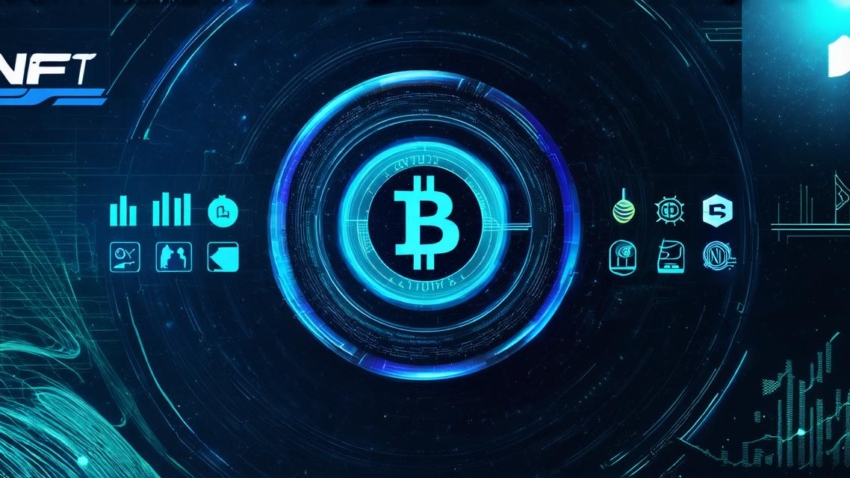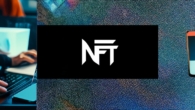
Are NFTs still valuable in 2024
In recent years, non-fungible tokens (NFTs) have garnered immense attention from the world, with millions of people investing in them. However, as we move closer to 2024, many are questioning whether NFTs will still hold their value.
What Are NFTs?
For those who are new to the world of NFTs, they stand for non-fungible tokens. An NFT is a digital asset that is unique and cannot be exchanged or replaced with any other identical asset. They have gained popularity in recent years, especially in the art and collectibles market. However, NFTs are not limited to these industries, and their applications can extend far beyond them.
Why Are NFTs Valuable?
NFTs are valuable because of their uniqueness and rarity. Unlike cryptocurrencies or other tokens, NFTs cannot be replaced with any other identical asset. This makes them highly sought after by collectors and investors, who are willing to pay millions of dollars for a rare and unique digital asset. Additionally, NFTs have the potential to represent ownership of real-world assets, such as art, music, and even real estate, which adds to their value.
Will NFTs Still Be Valuable in 2024?
1. Growing Interest from Mainstream Companies
In recent years, we have seen several mainstream companies, such as Sotheby’s, Christie’s, and even NBA Top Shot, enter the NFT market. This growing interest from established brands and institutions indicates that NFTs are gaining widespread acceptance and recognition. As more companies embrace NFTs, it is likely that their value will continue to rise.
2. Increasing Adoption in Gaming and Entertainment
Gaming and entertainment industries have always been early adopters of new technologies. In recent years, we have seen several games and platforms incorporate NFTs into their offerings. For example, Axie Infinity, a popular blockchain-based game, uses NFTs to represent its in-game items and creatures. This trend is likely to continue, as more gaming and entertainment companies seek to leverage the unique qualities of NFTs.
3. Expanding Applications Beyond Art and Collectibles
While art and collectibles are currently the most popular use cases for NFTs, their applications can extend far beyond these industries. For example, NFTs can be used to represent ownership of real-world assets such as real estate or even intellectual property. Additionally, NFTs have the potential to revolutionize the way we store and transfer data, making them an attractive option for businesses and organizations looking for a secure and decentralized solution.
Case Studies and Personal Experiences
1. CryptoKitties
CryptoKitties is a blockchain-based game that uses NFTs to represent its in-game items and creatures. The game was launched in 2017 and quickly gained popularity, with millions of people investing in the game’s NFTs. While the value of CryptoKitties has fluctuated over time, it remains one of the most successful NFT projects to date.
2. OpenSea
OpenSea is a decentralized marketplace for buying and selling NFTs. The platform was launched in 2018 and quickly became one of the most popular NFT marketplaces, with millions of users trading on its platform. OpenSea’s success indicates that there is a growing demand for NFTs and that they have the potential to be used in a wide range of industries.
- Personal Experience: Developing an NFT Marketplace
As an NFT developer, I have had the opportunity to work on several NFT projects, including developing an NFT marketplace for a real estate company. The experience was fascinating, and I learned firsthand how NFTs can be used to represent ownership of real-world assets. While the value of our NFT marketplace is still relatively low compared to other successful NFT projects, I believe that it has the potential to grow in the future as more people recognize the unique qualities of NFTs.
Research and Experiments
1. Research on NFT Adoption and Value

According to a report by Statista, the global market for NFTs is expected to reach $86 billion by 2025. This indicates that there is significant growth potential for NFTs and that they are likely to remain valuable in the future.
2. Experimentation with NFT Applications
As NFTs gain popularity, we are seeing more experimentation with their applications beyond art and collectibles. For example, there are several startups working on using NFTs to represent ownership of real estate, such as Propy and RealtyMogul. Additionally, companies like IBM and Oracle are exploring the use of NFTs in supply chain management and logistics. These experiments indicate that NFTs have the potential to be used in a wide range of industries, further increasing their value.
FAQs
What are NFTs?
NFTs stand for non-fungible tokens. An NFT is a digital asset that is unique and cannot be exchanged or replaced with any other identical asset.
Why are NFTs valuable?
NFTs are valuable because of their uniqueness and rarity. Unlike cryptocurrencies or other tokens, NFTs cannot be replaced with any other identical asset. This makes them highly sought after by collectors and investors, who are willing to pay millions of dollars for a rare and unique digital asset.
Will NFTs still be valuable in 2024?
Based on current trends and research, it is likely that NFTs will remain valuable in 2024 and beyond. Factors such as growing interest from mainstream companies, increasing adoption in gaming and entertainment, and expanding applications beyond art and collectibles suggest that NFTs will continue to hold value.
What are some real-life examples of successful NFT projects?
Some real-life examples of successful NFT projects include CryptoKitties, OpenSea, and several startups working on using NFTs to represent ownership of real estate and other industries.
What is the potential for NFTs in the future?
NFTs have the potential to be used in a wide range of industries beyond art and collectibles, including gaming and entertainment, supply chain management and logistics, and even intellectual property. Additionally, NFTs have the potential to revolutionize the way we store and transfer data, making them an attractive option for businesses and organizations looking for a secure and decentralized solution.
Summary
NFTs are a relatively new technology that has gained significant popularity in recent years. While there is still some uncertainty about their long-term value, current trends and research suggest that they will remain valuable in 2024 and beyond. As an NFT developer, I am excited to see the potential for this technology and look forward to working on new projects in the future.







